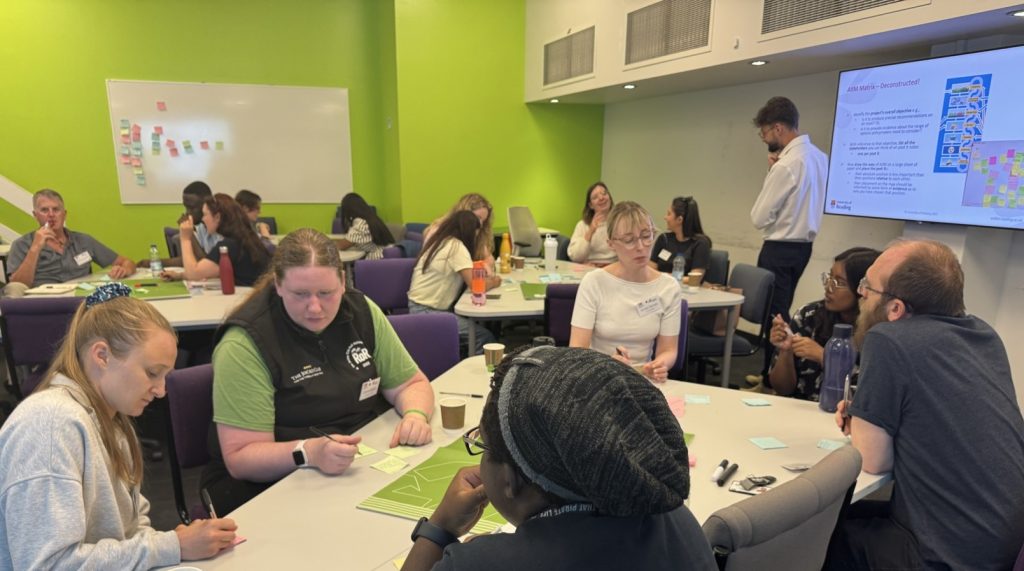
FoodBioSystems Summer School | University of Surrey | Tuesday, 22nd July 2025
On 22nd July 2025, the Walker Institute delivered a dynamic workshop titled “Your PhD Within the Food System” at the FoodBioSystems Summer School, hosted by the University of Surrey. Facilitated by Professor Rosalind Cornforth and Daniel Mardi, the session brought together PhD students from across the FoodBioSystems DTP to explore how their research fits into the broader food system and how it can contribute to real-world impact. The workshop encouraged students to think beyond their disciplines and consider the interconnected nature of food systems, climate resilience, and policy engagement.
The morning session introduced participants to tools and frameworks for identifying stakeholders, mapping influence, and understanding the enabling environment for research impact. Using real-world examples—such as the effects of European heatwaves on UK food supply—students explored the implications of climate shocks and the importance of interdisciplinary evidence. Activities like the AIIM Matrix (Alignment, Interest, and Influence Mapping) helped students reflect on their own research pathways and how to engage with decision-makers effectively.
In the afternoon, students took part in the CAULDRON Game—an interactive, role-playing experience designed to simulate the complexities of climate change attribution and international policy negotiation. Developed by the Walker Institute and partners, the game places players in the roles of farmers, scientists, and policymakers navigating drought scenarios and climate treaty discussions. The session fostered lively debate and deepened understanding of how scientific evidence, uncertainty, and equity shape global responses to climate-related loss and damage. More about the game can be found on the Walker Institute website. We would like to thank Eme Dean-Lewis and Lynn De Miranda for their help with facilitation.

